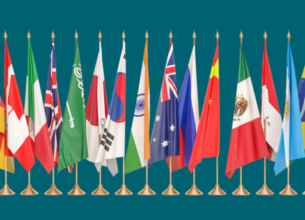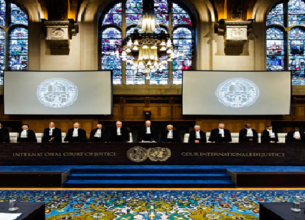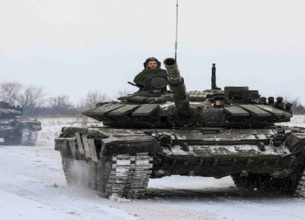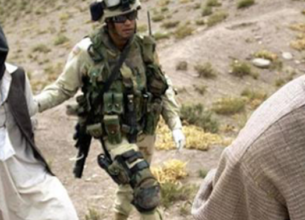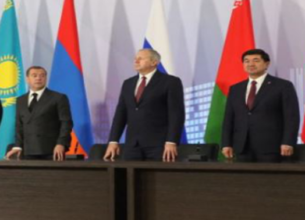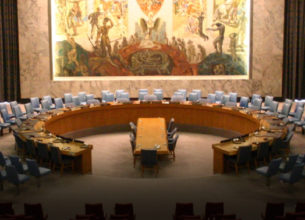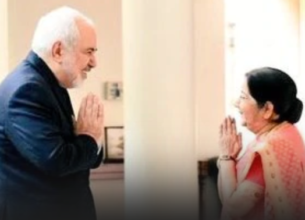India’s abstention on UNSC vote over Russia’s invasion of Ukraine
03, Mar 2022
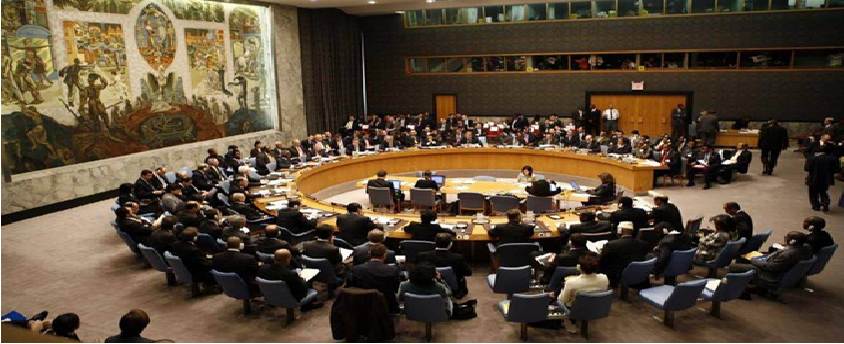
Prelims level : International Institutions – Summits, Working, Organisations
Mains level : GS-II Effect of policies and politics of developed and developing countries on India’s Interests, Indian Diaspora.
Why in News?
- India recently abstained on a US-sponsored UN Security Council resolution that “deplores in the strongest terms” Russia’s “aggression” against Ukraine.
Who moved the Resolution?
- The UN Security Council voted on the draft resolution presented by the US and Albania, and co-sponsored by several other nations, including Australia, Estonia, Finland, Georgia, Germany, Italy, Liechtenstein, Lithuania, Luxembourg, New Zealand, Norway, Poland, Romania and the United Kingdom.
What was the Resolution About?
- The Council’s resolution reaffirmed its commitment to the sovereignty, independence, unity and territorial integrity of Ukraine within its internationally recognised borders.
- The resolution “deplores in the strongest terms Russia’s aggression against Ukraine” and decides that Russia “shall immediately cease its use of force against Ukraine and shall refrain from any further unlawful threat or use of force against any UN member state”.
- The resolution added that Russia “shall immediately, completely, and unconditionally withdraw all of its military forces from the territory of Ukraine within its internationally recognised borders”. It also asked Moscow to “immediately and unconditionally reverse the decision related to the status of certain areas of Donetsk and Luhansk regions of Ukraine”.
- In UN Security Council meeting on #Ukraine today, India abstained on the vote on draft resolution.
Why did India Abstain?
- India did not endorse the harsh language used in the resolution condemning Russia’s actions.
- It wants to maintain a balance between the Western bloc led by the US, and Russia, since it has strategic partners on both sides.
- India’s past record has been maintaining balance between the West and Russia. On January 31, India abstained on a procedural vote on whether to discuss the issue of Ukraine. New Delhi had then articulated its position on “legitimate security interests” that echoed with a nuanced tilt towards the Russian position, and had abstained along with Kenya and Gabon.
So, what was the Fate of this Resolution?
- While Russia — which chaired the meeting of the UNSC since it holds the presidency for the month of February — vetoed the resolution, China, too, abstained along with the United Arab Emirates.
- Despite the remaining 11 members of UNSC, including US, UK, France, voting in favour of the resolution, it did not pass since Russia vetoed it.
- China’s abstention is a surprise since it had opposed the vote on January 31, and was seen echoing Russia’s position.
How did India Explain its vote?
- First, it said that it is “deeply disturbed”, but did not name Russia at all. India is deeply disturbed by the recent turn of developments in Ukraine.
- Second, it reiterated its appeal for “cessation of violence”. India urge that all efforts are made for the immediate cessation of violence and hostilities. This was conveyed by Prime Minister Narendra Modi to Russian President Vladimir Putin as well during the phone call.
- Third, it flagged its core concern about Indian nationals in Ukraine — about 16,000 are still stuck, most of whom are students. “India is also deeply concerned about the welfare and security of the Indian community, including a large number of Indian students, in Ukraine.
- Fourth, it touched upon “territorial integrity and sovereignty”, which was a new theme. The contemporary global order has been built on the UN Charter, international law, and respect for the sovereignty and territorial integrity of states. All member states need to honour these principles in finding a constructive way forward.
- Fifth, it advocated diplomacy. Dialogue is the only answer to settling differences and disputes, however daunting that may appear at this moment. It is a matter of regret that the path of diplomacy was given up. We must return to it. For all these reasons, India has chosen to abstain on this Resolution.
Was India under Diplomatic Pressure?
- Before the United Nations Security Council took up the draft resolution condemning the Russian invasion, India was caught in a diplomatic bind between the Western powers and Russia.
- Ambassadors of European countries in India got together in New Delhi and expressed solidarity with their Ukrainian counterpart and strongly condemned Russia’s “unprovoked and unjustified” military attack on Ukraine.
- British and EU Foreign ministers had also called up Jaishankar, while ambassadors of G-7 countries had expressed support for the Ukrainian ambassador.
So, is this good for India’s Diplomatic Space?
- Experts said that India maintained its “consistent, steadfast and balanced position on the matter”.
- “India has been in touch with all sides, urging the parties concerned to return to the negotiating table. By abstaining, India retained the option of reaching out to relevant sides in an effort to bridge the gap and find a middle ground with an aim to foster dialogue and Diplomacy,” a source said.
- An earlier draft of the resolution had proposed moving the resolution under Chapter VII of the UN Charter, which provides the framework within which the Security Council may take enforcement action, the sources added. However, this was dropped in the final version that was put to vote.



